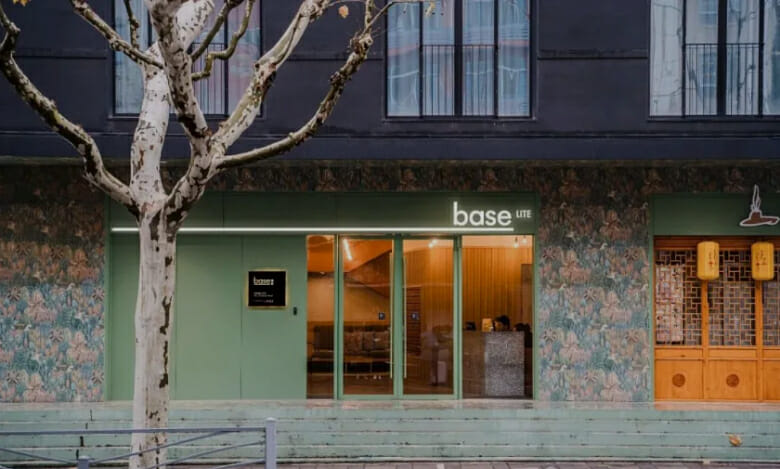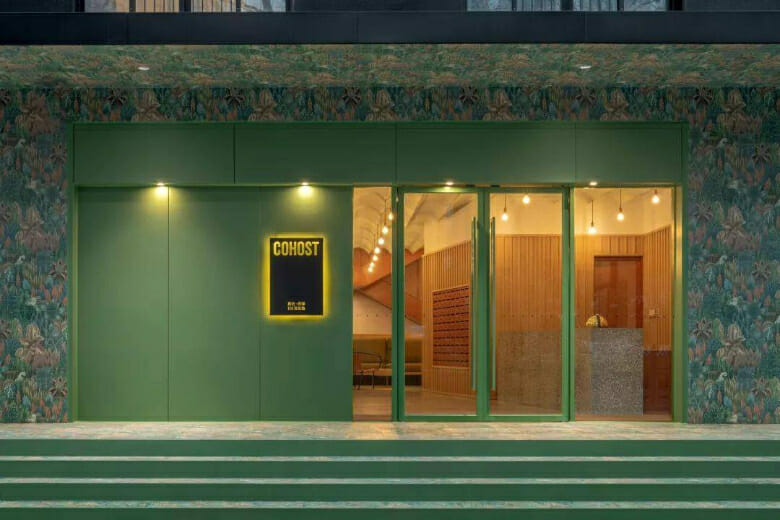
Schroders is exiting the project five years after acquiring the one-time hotel
China’s rental residential sector has seen another global fund manager expand its China rental residential holdings as Warburg Pincus-backed Golden Union Assets has reportedly acquired a co-living project in Shanghai’s southwestern suburbs from fund manager Schroders and Hong Kong-listed Deson Development International.
A source familiar with the latest deal told Mingtiandi that the transaction closed on 4 January, with Golden Union Assets paying roughly RMB 36,000 ($5,649) per square metre for the property now known as Cohost West Bund, valuing the asset at RMB 198 million ($31 million).
The deal for the converted hotel project in southern Xuhui district comes after LaSalle Investment Management teamed up with a private equity division of Hong Kong-listed Jingrui Holdings for a rental residential project in Shanghai’s Hongqiao area and New York-based KKR in mid-December announced a partnership with mainland multi-family operator Funlive for a 3,000 unit project near Beijing’s new airport.
All three of these projects have been revealed within the last month, after China’s government announced in July that it would redouble efforts to encourage development of rental housing as rising home prices continue to squeeze the budgets of young professionals and other urban residents.
Garden Living
Deson and Pamfleet, which was merged into Schroders in 2020, had entered into a RMB 82 million ($12.3 million) joint venture in 2016 to convert the Starway Parkview South Station Hotel in Xuhui district into co-living apartments, with Pamfleet taking a 70 percent stake in the JV for RMB 57.4 million and Deson holding the remaining 30 percent.

Schroders managing director Kelvin Wong
After taking ownership in 2016, Pamfleet and Deson converted the 7,318 square metre (78,770 square foot) hotel into the 67-unit Cohost West Bund, featuring studio, one- and two-bedroom apartments, a full gym with a pool and tennis courts, and over 1,000 square metres of boutique street-front shops.
The building on tree-lined Baise Road stands adjacent to the Shanghai Botanical Garden and less than 5 kilometres (3.1 miles) southwest of Caohejing Hi-Tech Park. It offers rental rates starting at RMB 8,000 a month for a studio and rising to RMB 16,500 for a two-bedroom unit.
Deson confirmed in its 2021 interim report released in November that it had entered into an agreement in October on the disposal of the entire equity interest in the property, including the Hong Kong-based group’s 30 percent stake, to an independent third-party buyer.
Betting on the Renters
US private equity giant Warburg Pincus and Shanghai-based redevelopment specialist Golden Union Group set up Golden Union Assets in mid-2021 as an urban renewal platform targeting RMB 50 billion ($7.7 billion) in assets under management within three years. The newly acquired co-living facility will be renamed Base West Bund after Golden Union’s Base serviced apartment brand.

Warburg Pincus has been a major backer of rental residential strategies around Asia, including investing in rental apartment operator Mofang from 2013 and backing the startup of Hong Kong’s Weave Living with a $413 million pledge in 2018.
Golden Union Assets, led by chairman Jessica Yu, has made no public announcement about the acquisition, and a Warburg Pincus representative contacted by Mingtiandi declined to comment on the deal.
Golden Union’s Shanghai properties include Kempinski The One Suites Hotel Shanghai Downtown, featuring high-end serviced apartments in the core commercial area of Jing’an district. The group’s Base unit managed and operated 17 projects with 1,532 apartments in Shanghai and Beijing as of the beginning of 2021.
Megacity Makeover
In line with Golden Union, other developers have seized on the theme of urban regeneration to launch Shanghai redevelopment projects in recent months.
Just last week, Hong Kong-listed Kerry Properties revealed the details of a supersized mixed-use project in the city’s central Huangpu district after acquiring the land use rights to four development plots for RMB 13.3 billion ($2.1 billion).
The group led by the youngest son of billionaire founder Robert Kuok plans to combine the four plots with six adjacent parcels into a megaproject with apartments and shikumen-style townhouses, high- and low-rise offices, retail spaces and hotel accommodation across 492,000 square metres of gross floor area.
In December, US fund manager LaSalle Investment Management announced its joint acquisition alongside a unit of Shanghai-based developer Jingrui Holdings of a retail and hotel property in the Hongqiao area, with plans to convert the distressed asset into a multi-family residential project.
The partners had signed an agreement to purchase the property near Hongqiao International Airport last April for RMB 438 million ($68 million) in cash, along with assumption of existing debt, with Jingrui holding a 25 percent interest in the asset.
The redevelopment effort marks the first deal under a new strategic partnership between LaSalle and Jingrui Capital, an asset management affiliate of the Hong Kong-listed developer, in which the two firms will invest in and develop multi-family projects throughout China.
KKR has entered China’s rental housing market through its Beijing partnership with Funlive, with the project connected to the Daxing high-speed rail station south of China’s capital expected to yield 100,000 square metres of living space.
Leave a Reply